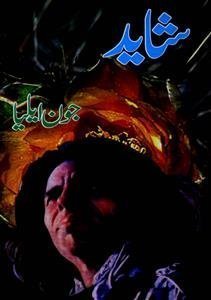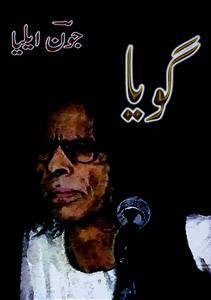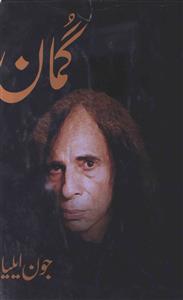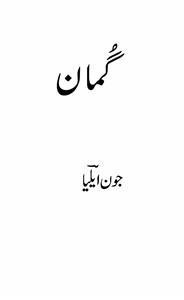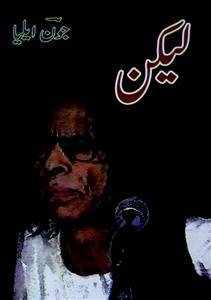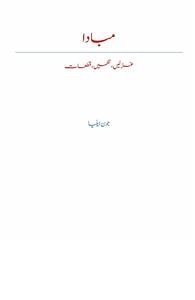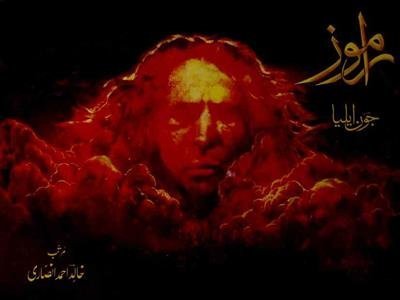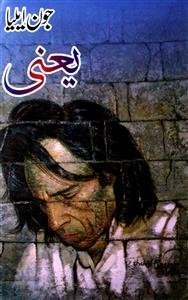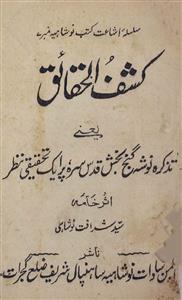 For any query/comment related to this ebook, please contact us at haidar.ali@rekhta.org
For any query/comment related to this ebook, please contact us at haidar.ali@rekhta.org
About The Book
جون ایلیا ایک باغی اور روایت شکن شاعر تھے۔ روایت شکنی، اختلاف رائے شاید جون ایلیا کا محبوب مشغلہ تھا ،اور ہر جگہ وہ اپنی بات بڑے وثوق سے رکھتے اور اس کو دلائل سے ثابت کرتے تھے۔ علمی مباحث اور اپنی فکر کا اظہار کرتے ہوئے جون ایلیا تارٰیخ ، فلسفہ ، منطق ، مذاہب عالم ، زبانوں ، ثقافتوں اور ماضی کی نابغہ روزگار شخصیات کے نظریات اور سیاسی و سماجی تحریکوں کے حوالے دیتے جاتے تھے ۔جون کی زندگی میں ان کا صرف ایک ہی مجموعہ کلام منظر عام پر آیا تھا جس کا نام "شاید" ہے ۔ اس کتاب کا دیباچہ جون کی زندگی کی مختلف واقعات سے آراستہ ہے ۔ ان کی شاعری نے ہر عمر اور طبقے کے لوگوں کو متاثر کیا ۔ ان کا حلیہ اور مشاعرہ پڑھنے کا انداز ایسا تھا کہ ہر شخص ان کی طرف کھنچا چلا آتا ۔ وہ اپنے عہد کے ایک بڑے تخلیق کار تھے ، جس نے روایتی بندشوں سے غزل کو نہ صرف آزاد کرایا بلکہ اسے ایک نئے ڈھب سے روشناس کرایا۔ محبوب سے شکوہ کرنا ہو یا رسوا ، زمانے کے چلن سے بیزاری اور نفرت کا اظہار کرنا ہو یا کسی رویے پر چوٹ ، جون ایلیا خوف زدہ نظر نہیں آتے ۔ جون نے زندگی کو اپنی ہی طرقے سے دیکھا اور جیا ہے ۔ اس لئے اگر اردو کا ایک ایسا لہجہ جو جون پر شروع ہوا اور ان ہی پر ختم ہوا دیکھنا ہے تو ان کے اس شعری مجموعہ کا مطالعہ کرنا اشد ضروری ہو جاتا ہے، خاص کر اس وقت جب ہمیں یہ پتہ ہو کہ جون نے اس مجموعہ کو خود مرتب کیا ہے۔ اس مجموعہ میں شامل "نیازمندانہ" کے نام سے جون کا مقدمہ بہت اہمیت کا حامل ہے۔
About The Author
Syed Jaun Asghar (1931-2002), popularly known as Jaun Elia, was born in Amroha where he received his early education under the guidance of his father, Shafiq Hasan Elia. He acquired the degrees of Adeeb Kamil (Urdu), Kamil (Persian), and Fazil (Arabic). He migrated from India in 1957 and settled in Karachi where he worked at the Ismailia Association of Pakistan supervising writing and compilation from 1963 to 1968. Following this, he remained associated with the Urdu Dictionary Board. He also edited Aalami Digest with Zahida Hena.
Jaun Elia was deeply interested in the disciplines of history, philosophy, and religion. This gave a certain touch of otherness to his personality and poetry. His poetry is remarkable for its effortless expression and immediacy of appeal. While he published his first anthology Shaayed (1991) during his lifetime, Other poetry collections Yaani (2003) Gumaan (2004), Lekin (2006), Goyaa (2008), and a book in prose titled Farnood (2008) were published posthumously by his trustworthy companion Khalid Ahmed Ansari. Among these Yaani was initially published by Al Hamd Publishers but they republished it with Khalid's help and with inclusion of 80 additional verses.
Khalid also compiled Jaun's prose work titled 'FARNOOD,' which Jaun had been contributing to various magazines from 1958 until his demise in 2002.
Furthermore, Khalid compiled Jaun's epic poem 'RAMOOZ,' consisting of 12 tablets, as well as a book titled "MaiN Ya MaiN" which contains articles about Jaun Elia, written by various individuals, his friends, his acquaintances and various prominent literary figures. This book gives a deep insight about Jaun's life and his works and is a very important document for those who are interested in knowing Jaun Elia more.
Currently, Khalid is working on Jaun's long-awaited poetic collection, titled 'KYUN.'
Jaun had also collected his letters to Zahida Hina to whom he was married but they had separated later. Elia had also translated Kitab-ut-Tawwaseen and Jauhar-e-Salqui by Mansoor Hallaj which remain unpublished. The government of Pakistan honoured him with the prestigious award of excellence for his services to literature.
 For any query/comment related to this ebook, please contact us at haidar.ali@rekhta.org
For any query/comment related to this ebook, please contact us at haidar.ali@rekhta.org
